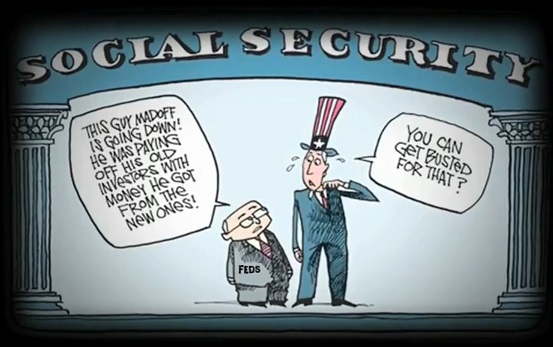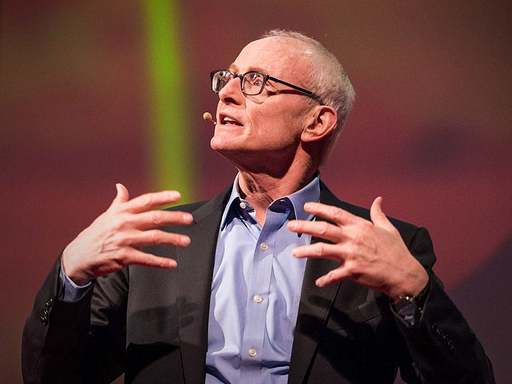—Cenocracy: On the path of a New Government —
All our social issues, all our problems... are symptoms reflecting a much larger circumstance involving attempts to make adaptive adjustments to various type of decay: physical (biological), environmental (Earth-bound), planetary (Earth-Moon-Sun, including the galaxy and surrounding Universe).
Unfortunately, while we can find multiple references regarding the problems created by the human/Earth-environmental relationship, we do not find as many authors citing interactive developments between the two, nor how the larger cosmological, solar system and other planetary events are creating problems... that humans can't do anything about. While environmentalists speak of making improvements or stopping destruction by way of legislation, we do not find those who who view present governing processes as types of environmental issues themselves. People generally do not know how to conceive of governments in terms of environmental events which cause problems, because we look at humans as the cause of a bad government or policy, and not that such also is a problematic symptom of the larger environmental (planetary) issues.
Social, Political, Economic and Environmental Issues That Affect Us All
A short list of some global issues
Wikipedia: List of Environmental Issues
Top 15 major current environmental problems:
|
Comparing and Contrasting the Animal Rights and Environmental Movements
Journal of Terrorism Research: Animal rights and environmental terrorism/ Steve Cooke
Indiana University of Pennsylvania: Environmental/Animal Rights (Women's and Gender Studies)
Whereas we can stop and slow down some types of destruction that can lead to decay, we can not stop the larger planetary disentegrations such as the expansion of the galaxy, expansion and burnout of the Sun, slowing rotation of the Earth (affecting electro-magnetism, circadian and longer rhythms), and recession of the Moon (affecting tides). Such disentegrations affect our bodies, our minds (such as ideologies), and thus our societies.
Humans can cause the spread of disease:
Wikipedia: History of social viruses
Hunger can be cause by many factors, including human insensitivity, such as by way of putting self-centered economic interests ahead of collective human need as was the case with the Irish potato famine.
Wikipedia: Hunger
Wikipedia: Great Famine (Ireland)
Because our present knowledge does not contain a means by which we can stop various kinds of decay, it behooves us to attempt to prolong the life cycle of the species by giving humanity a protracted opportunity to address the issue(s) of decay; by designing a New Government... a Cenocracy, which will be focused on the utilization of all resources with the explicit intent of removing as many species as possible, from Earth, and seek colonization outside the Milky Way galaxy... be it on another planet or artificially constructed environment.
The many different kinds of social problems, like problems encountered with our bodies as we decay, require personal and regional adaptations not always conducive to the well-being of a society that is trying to make the necessary adjustments to decay; but also retain the viability of youthfulness. However, like a married couple that experiences individual differences in taste, hearing, mobility, sensitivity to temperature... light, etc...; societies often make adjustments that are not conducive to youthfulness— and often resort to making laws that force the young to adopt perspectives, attitudes and behaviors more suitable for those near to death than those more nearer to birth and early developmental sequences. It results in a situation analogous to that found amongst couples whose need for warmth and coolness can create further disturbances in their attempts to reach a compromise that involves sacrifices where both must endure some level of discomfort.
For example, a wife may constantly think it is too warm in a house and the husband think it too cool or cold. So-called compromise may take the form of both sacrificing a measure of total comfort or one assumes the role of enduring most of the discomfort in order to make the other person more happy. Problems mount when both must rely on a Social Security check that is taxed... though it is the result of previous taxes taken out, and costs increase but their income does not. Hence, a situation arises which exhibits another instance of decay. Yet, the present forms of government being practiced today do not want to experience decay, they want to enjoy growth. Economic policies that are promoted as growth producers... or at least maintainers, do not necessarily involve a comprehension of the decay in resource availability or increased population that may contribute to volume of production and consumption, but only to a point not exceeding available resources. Afterwards, policies involve the illusion of growth by stretching or diluting resources to give the impression of more... but overall quality suffers as it is presently doing in so many areas of production.
For example, whereas in the past a given baker had enough resources to bake 100 loaves of bread in 25 different varieties to feed the different tastes of a small community, an increase in the size of the community to double it size required that a new formula of baking and/or recipe had to be developed in order to produce 200 loaves from the same limited resources. An increase in available resources may tend to conceal the underlying equation for a time, but eventually... a limitation in resources will arise requiring adjustments being made. The number of vanities may be reduced in order to simply production and increase profits by streamlining the baking process, but again, eventually... the limitations of resources will force further adjustments to be made in order to both feed a growing (if not wasteful) population and ensure an increase in profits so that investors will not remove their funding and provide evidence that a company functions by way of a hidden pyramid or ponzi scheme, much like the Social Security system does... regardless of all the rationlizations ("explanations") used by refuters of such a claim, including the idiotic attempts by the Social Security office itself.
 |
 |
 |
 |
A Ponzi scheme is a Ponzi scheme whether the game rules are made public or kept private. It is a pyramid scheme nonetheless. Trying to use semantics to create the illusion of a distinction between good and bad, right and wrong, is just as silly as trying to describe a "Representative" Republic form of government as a "public-run" Democracy. If Social Security belongs to the people, then the people should be able to run it and not be forced to accept the government as a non-elected CEO and referee. A fraud is a fraud is a fraud, whether the Social Security system was initiated in this manner or not. It has ended up as a fraud because the public is not permitted to collectively decide on who, when and how much a person is entitled to receive. 100% of funds collected are not 100% returned. Overhead costs must somehow be paid, including the increase in wages and employee benefits. The people are not permitted to collectively decide on how the system should be run, who should be in charge, nor any other operational criteria. To say that the Social Security system belongs solely of, by and for the people is a fraud, just like the overall government is.
So now a company must make 400 loaves of bread and convince stock holders that their company is viable, by using the practice of advertising by way of providing several different kinds of loaves. However, if it diversifies as many companies do, and yet does not want to give the impression of having a monopoly of different business markets, the company engages in concealing its ownership as best it can, without breaking any business disclosure laws. By this time, several generations removed from the original recipe, the current recipe of baking bread can use various substitutes because the government permits its citizenry to be slowly poisoned in an "out of sight, out of mind" fashion, so long as companies keep paying their taxes and those in government are permitted to indulge in giving themselves a raise without a nay or yea consent from the public. Large companies provide greater tax revenues from a single source without much bureaucratic maintenance, than do large numbers of citizens whose taxes may vary due to employment issues and numerous social maintenance costs.
Social problems are rampant. But democracy is not very good at solving them. However, when we compare it to other worse values, we can falsely make it look to be the best formula. We do not attempt to compare it with other prevailing ideas because other ideas are not widely known. Take a look at the following short video entitled "Democracy and Chronic Social problems":
Source: Social Problems
This next video naively suggests the way to solve social problems, in one respect, is to get the necessary resources from the promotion of business. (Click on the image to be redirected to the 16.25 minute video):
The case for letting business solve social problems
For this next example (again with a business orientation), the video presentation represents a usage of "Behavioral Economics" (applied to social problems involving money). A definition from the Wikipedia may be of interest:
Behavioral economics, along with the related sub-field behavioral finance, studies the effects of psychological, social, cognitive, and emotional factors on the economic decisions of individuals and institutions and the consequences for market prices, returns, and resource allocation, although not always that narrowly, but also more generally, of the impact of different kinds of behavior, in different environments of varying experimental values.[1] Behavioral economics is primarily concerned with the bounds of rationality of economic agents. Behavioral models typically integrate insights from psychology, neuroscience and microeconomic theory; in so doing, these behavioral models cover a range of concepts, methods, and fields. The study of behavioral economics includes how market decisions are made and the mechanisms that drive public choice. The use of the term "behavioral economics" in U.S. scholarly papers has increased in the past few years, as shown by a recent study. There are three prevalent themes in behavioral finances:
Source: Wikipedia: Behavioral Economics |
The usage of "behavioral economics" is persistently focused on addressing individual economic problems... because, as mentioned in the video, the "group" is made up of individuals, and thus, by this type of association, larger "social" issues are thus addressed. It assumes that group problems are made up of individual "economic" problems, whereby environmental issues are not even adequately analyzed with respect to the species involving the recurring envrionmentally influenced patterns found in anatomy, genetics, sociology and various other subject areas... many of which use a tripartite organizational orientation, even if the speaker is not aware of such a usage.
Date of Page Origination: Wednesday, 12-Sep-2016... 05:02 AM
Initial Posting: Wednesday, 21-Sep-2016... 07:15 AM
Updated Posting: Monday, 26-Sep-2016... 07:22 AM
